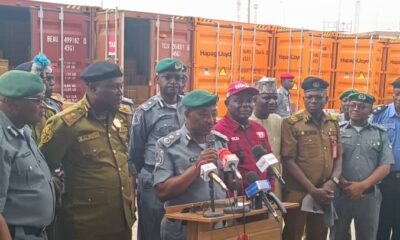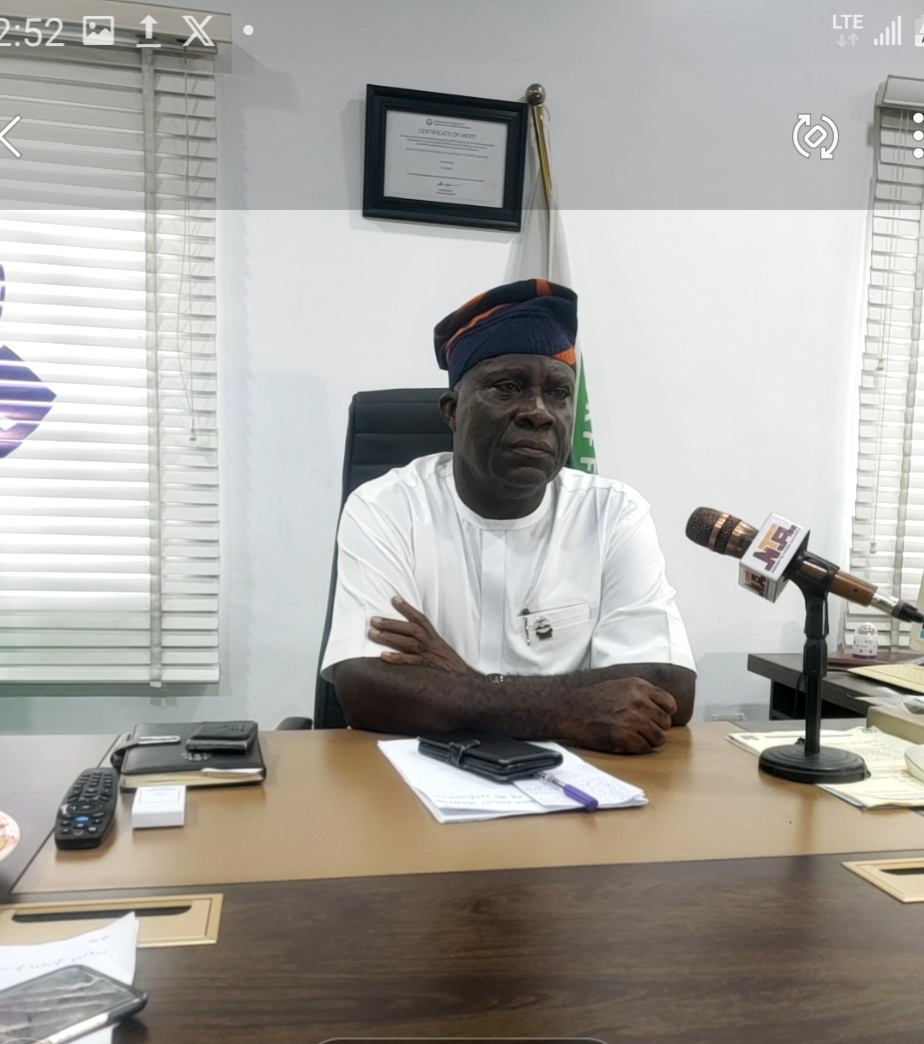Customs Report
Senate Committee, Stakeholders Discuss Reopening of Vehicle Import Through Seme
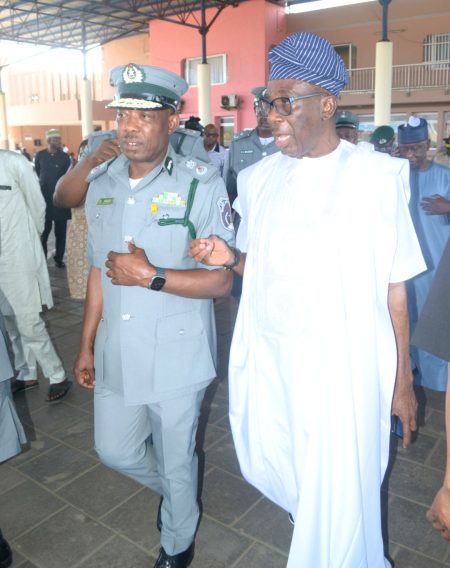
BY FUNMI ALUKO
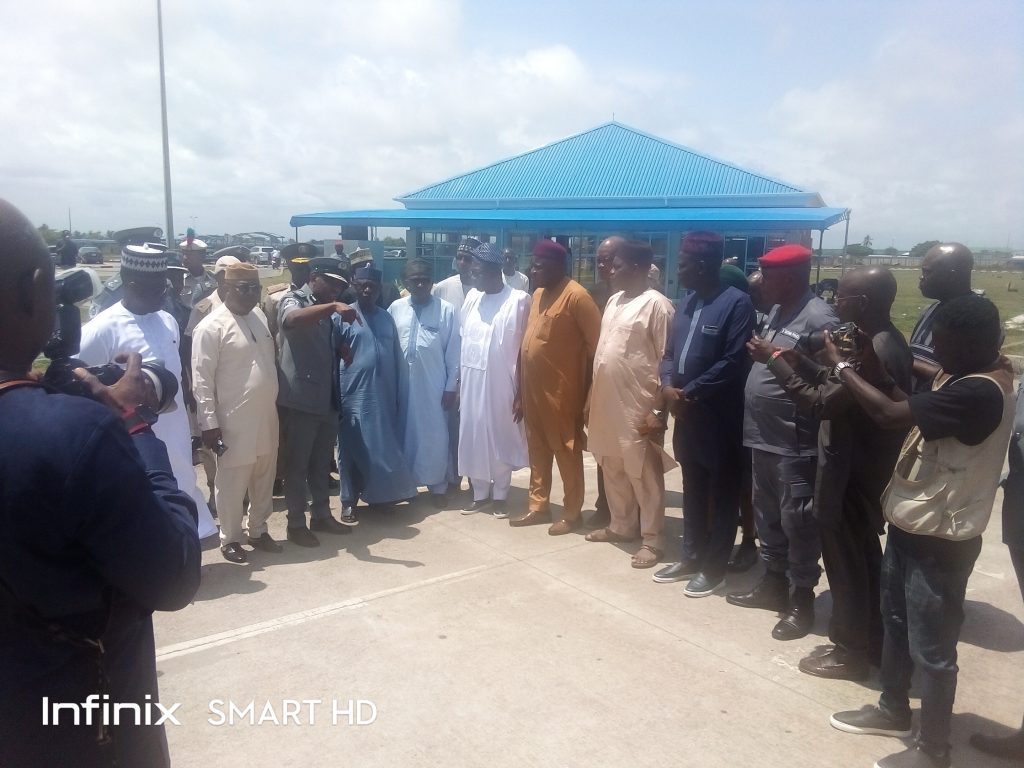
Seme Customs boss, Comptroller Nnadi explaining some operational issues to the committee members at Seme
The Senate Adhoc Committee on Customs Tuesday engaged stakeholders within the Seme Border Corridor on issues of national wellbeing, security, peace and harmony, even as the discussions dovetailed towards reversal policy ban on imported vehicles and other items through the Seme land border.
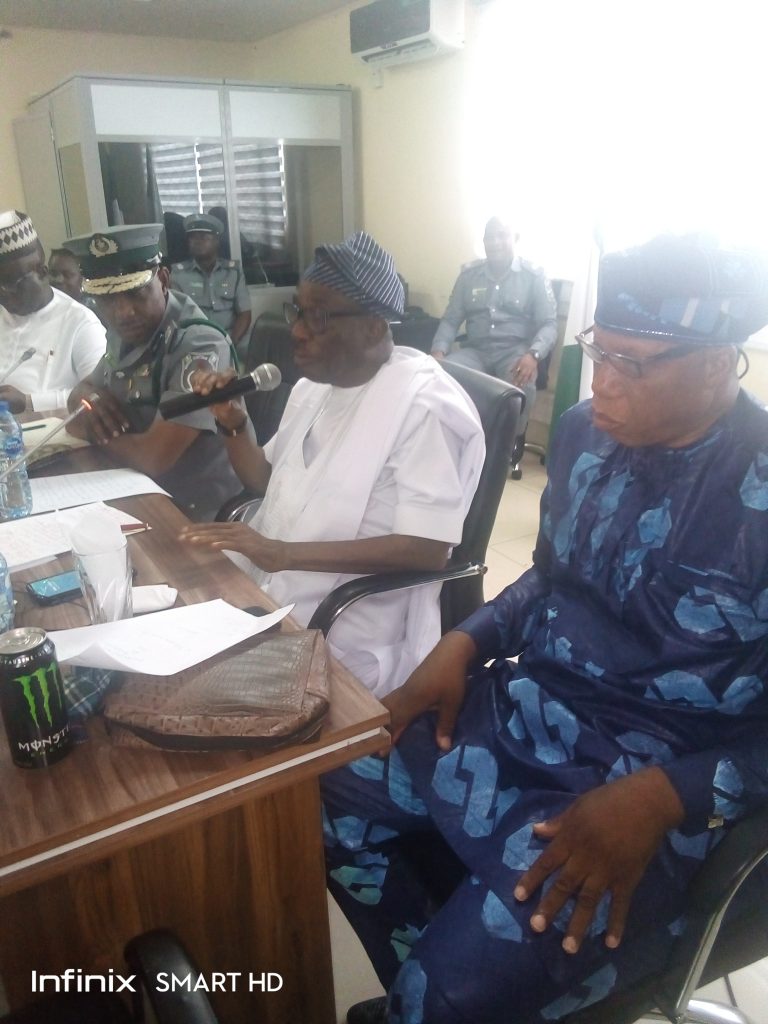
Senator Fadahunsi making a point while Comptroller Nnadi left and Hon. Joseph Gbenu and others are listening
Chairman of the six-man Senate Adhoc Committee, Senator Francis Ade Fadahunsi who visited the Seme Border Customs Command with his committee members in continuation of their tour of border stations nationwide, after listening to virtually all segments of interests groups and trade within the corridor pledged to table the stakeholders request before the Nigerian Senate for consideration.
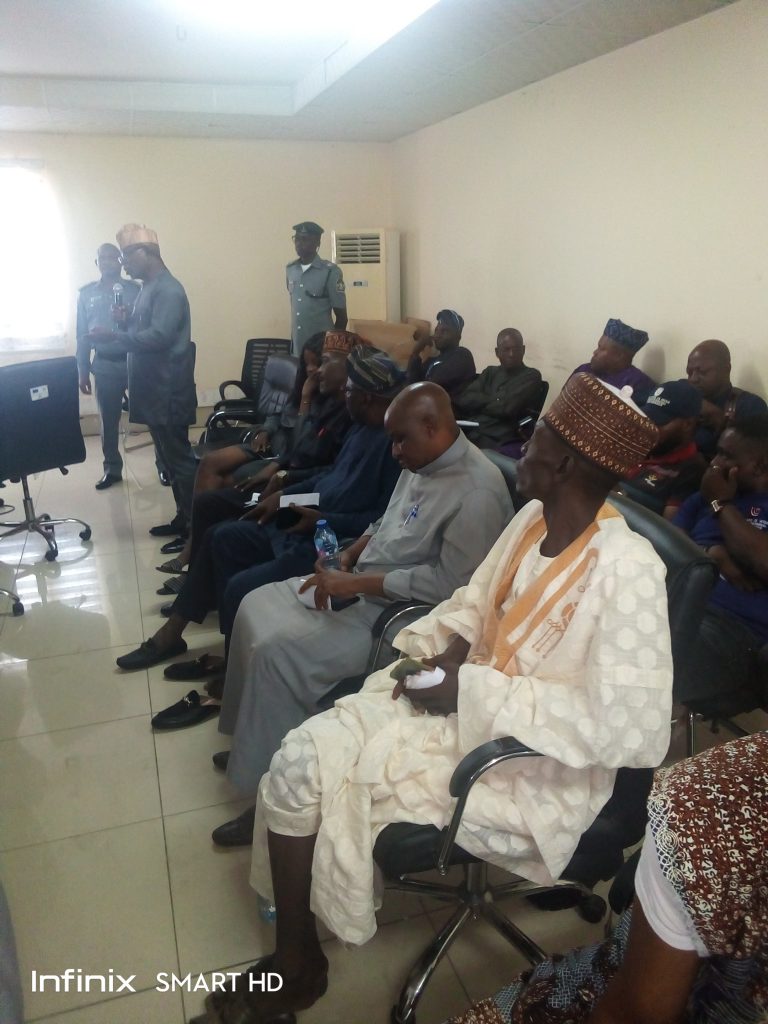
A cross section os stakeholders during the senate committee, customs meeting
The senate committee chairman noted that the administration of President Bola Tinubu is not only a listening one but one that is greatly concerned about the national economy as much as the citizens welfare, and expressed the hope that the Seme border alongside others that has been shut against certain importations without adequate fallback position will receive speedy review that will be beneficial to both government and the people; and one he said will properly align with the national economy and citizens standard of living.
Senator Fadahunsi said the present administration is conscious of the hardship border community dwellers has inadvertently been exposed in recent time, and said the Nigerian Senate is determined to engage the Presidency towards finding an acceptable middle of the road approach to reducing such hardship, while exploring strategies at recreating the nation’s economic development agenda.
The stakeholders which comprised of royal fathers, community and youth leaders, trade associations, importers, clearing agents, freight forwarders and others within the border logistics value chain lamented that the Seme border community and its peoples have suffered greatly since the banning of vehicles and rice import through the land border.

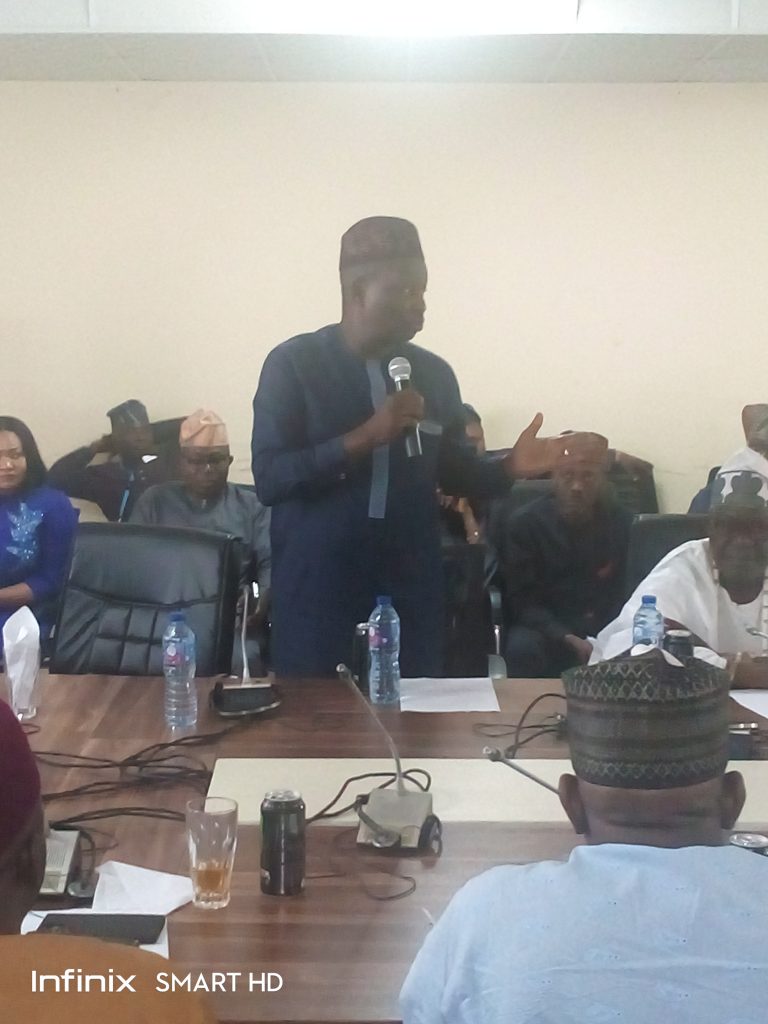
Director NAFDAC, Dr. Nurudeen speaking during the meeting
Some of the stakeholders said most of the import policy bans were clearly anti-people, insensitive and unjust, and that bother community dwellers, their families, wives, children, aged parents and dependants became victims of extreme and desperate policy thrust, through which citizens literally became slaves in their own country.
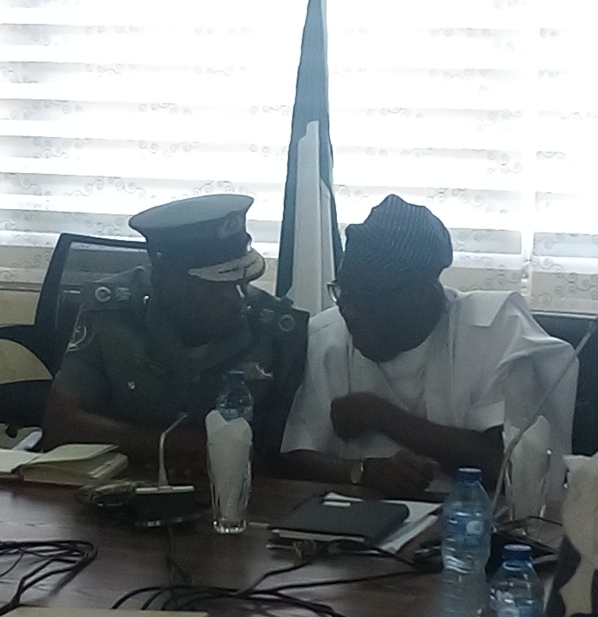
Comptroller Nnadi and Senator Fadahunsi in a tete-a-tete during the engagement
The painted a graphic picture of where border community people are forced to live like conquered people, unable to source for basic food and essential items like rice, fuel, vegetable oil, without being chased around like criminals and subjected to emotional trauma.
The Seme Customs Area Controller, Comptroller Dera Nnadi mni, while giving the senate committee members a rundown of its mandate and efforts to secure the cooperation of the border community in carrying out its assignments, said the community people have been very responsive and helpful in ensuring that the indigenes and federal government workers in the border area live in peace and harmony.
While thanking the lawmakers for their concern about the welfare of the border community people, Nnadi noted that the axis which sits on the Lagos-Abidjan Corridor is a significant nexus for international trade between Europe and Ameriaca, and landlocked neighbouring countries; and at the same time a critical economic interchange for the West and Central Africa region, and beyond.
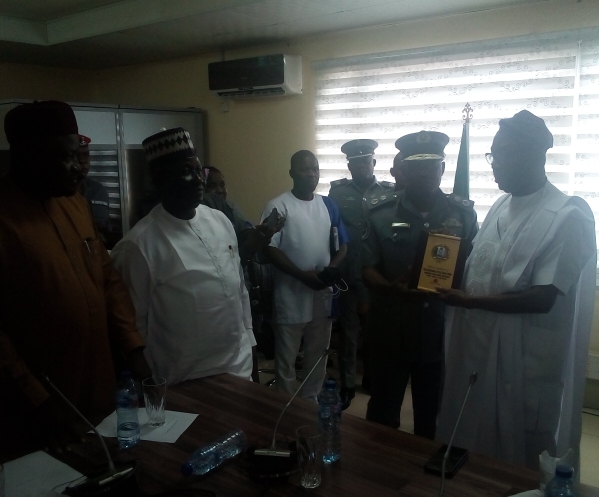
Comptroller Nnadi presenting a plaque to Senate Committee Chairman, Senator Fadahunsi at the end of the meeting
He explained that the Nigeria Customs Service is a mere errand organization who implement laws made by government, noting that the command has the wherewithal to commence customs documentation and clearance of imported vehicles, anytime the ban is lifted by government.
By and large, he assured the senate committee members that under his watch, the officers and men will continue to implement extant policies and to work towards ensuring that the border is secured all the time, noting that a secured border helps seaports command to achieve optimal performance.



